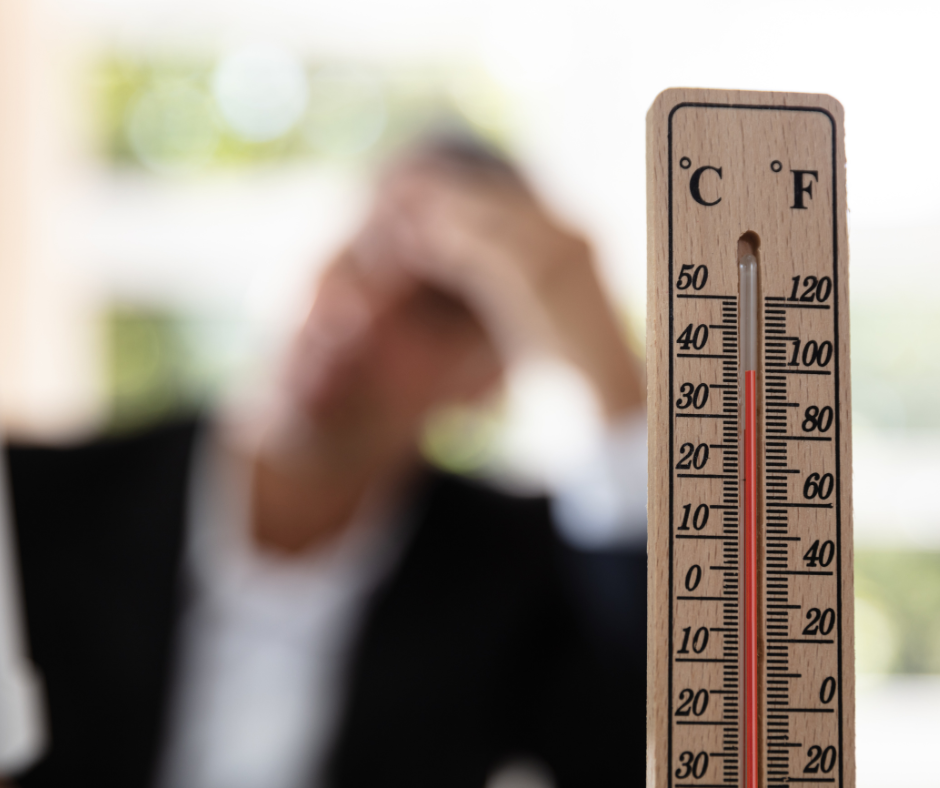If it seems like the sun is suspended especially high above your head, it’s not far from the truth. We recently experienced the “longest day of the year” in the northern hemisphere, the summer solstice. The word solstice literally means "sun standing still” which perfectly describes its position in the sky and boldly signifies that summer is officially here.
With a lengthy, hot summer ahead, it’s time to enjoy some summertime fun. But at the end of a day in the sun, as the temperature barely dips, it can be difficult to fall asleep. You may end up tossing and turning in a room that just feels too warm.
Does ambient room temperature affect the ability to get a good night’s sleep?
Absolutely. Sleep and thermoregulation (the regulation of body temperature) are closely intertwined processes that impact the quality of our sleep and overall well-being.
As your body prepares for sleep, your circadian rhythm causes your body temperature to cool by 1-2 degrees Fahrenheit, which is essential for initiating and maintaining sleep. During non-rapid eye movement (NREM) sleep, your body and brain temperature continue to cool. This helps to promote deep sleep and repair the body. However, when you enter REM sleep, your body temperature and brain temperature will rise again. This is thought to be due to increased brain activity during REM sleep. This rise and fall of internal temperature are crucial to restful and reparative sleep.
When the ambient temperature is too high or uncomfortable, it can interfere with the body's natural cooling process and disrupt sleep. Feeling too hot (or too cold) can cause discomfort, restlessness, and frequent awakenings throughout the night.
To optimize sleep and thermoregulation, it's recommended to create a sleep environment that promotes a cool and comfortable temperature year-round. Keeping the bedroom well-ventilated and adjusting the room temperature to a slightly cool level (around 60-70°F or 18-21°C) can contribute to better sleep quality.
But during the summer, it’s not always feasible (or economical) to set a thermostat in the optimal sleep zone. Don’t let a great night’s sleep slip away into summertime blues.
Here are a few more tips for keeping cool at night.
Draw the curtains: Closing curtains or shades blocks light and heat, which also promotes the release of sleep-inducing melatonin.
Drink cool or iced water: Staying hydrated with cool liquids helps regulate body temperature, especially in hot environments.
Use comfortable clothing and bedding: Opt for loose and lightweight clothes, comfortable bedding materials, and a cooling pillow like the MVMI Pillow with breathable mesh construction that stays cool throughout the night.
Avoid exercise before bed: Exercise raises body temperature, so allow time to cool down before sleep.
Consider adjusting your sleeping spaces.
Be mindful of alcohol and food: Avoid alcohol, which can dehydrate and disrupt temperature regulation. Avoid large or spicy meals close to bedtime that can increase body temperature and interfere with sleep.
What we have learned
Sleep and thermoregulation are intricately connected and have a significant impact on our sleep quality and overall well-being. To ensure optimal sleep, it is advisable to create a sleep environment that promotes a cool and comfortable temperature throughout the year. By taking some proactive measures and planning, it is indeed possible to transition from hot summer days to nights of restful and rejuvenating sleep.



